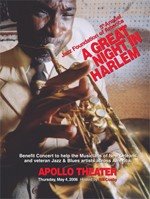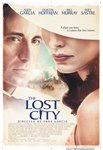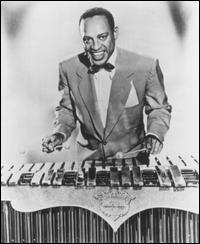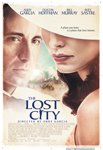Depending on who you ask, he is either a martial arts teacher who is also among the “top 1% of jazz bassists,” or a traitor who swore allegiance to al-Qaeda. David R. Adler’s guest column in the May
Jazz Times (not yet on-line) wisely suggests caution on the part of the jazz community in responding to the Shah case. However, some like promoter Margaret Davis and Jazz Journalists President Howard Mandel have jumped in with both feet to champion Shah’s case.
Davis claims “He is suspected of having thoughts, spoken words and/ or companions the government doesn’t like, and though not actually charged with committing a crime, he has been held in solitary confinement ever since.” This is demonstrably false. Shah has been charged with two counts of conspiring to aid a foreign terrorist organization, as well as third related charge. The
government’s complaint is available on-line and it makes chilling reading. Here are some of the details:
On Dec. 16, 2003 during a meeting with an FBI confidential source (now thought to be Yemeni Mohammed Alansi) Shah is alleged to have expressed interest in “obtaining a location where he could ‘train’ in hand-to-hand combat and prepare brothers [for jihad].” The source offered he might have a warehouse that would suit Shah’s purposes, to which Shah suggested “hang some tires [in the warehouse] ‘cause I teach, I teach the brothers how to use swords and machetes.”
According to the complaint, during that meeting, “Shah also discussed the possibility of opening a machine shop in order to fabricate ‘many things’ including weaponry, so that ‘you wouldn’t have to depend on people’ to make ‘your barrels [gun barrels], anything like that.”
Shah complained he had been unable to leave the country for terrorist training because as the complaint explains: “Shah is subject to a court order regarding his failure to provide child support.” Rather than raise money for Shah’s defense, perhaps Ms. Davis should consider raising money for his dependants.
On Dec. 23, 2003 Shah was arrested by Yonkers police for petit larceny as part of a dispute with a former landlord. During a routine search of his car they found phone numbers of Seifullah Chapman, who would later be convicted of providing material support to terrorists, and an individual believed to have connections to foreign terrorists.
Later in January or February 2004 Shah reportedly offered to recruit his friend and now co-defendant Rafiq Sabir, a medical doctor who allegedly wanted to offer his medical services to al-Qaeda. At one point “Shah discussed how he and his ‘friend’ attempted to go to the ‘mountains’ [which appears to be a veiled reference to training camps in Afghanistan].”
During a March 4, 2004 meeting with an undercover FBI agent (UC-1) arranged by the source, the complaint alleges “Shah physically demonstrated to UC-1 how he had fashioned his prayer beads into a weapon and how the prayer beads could be used to strangle a person.”
Then at an April 1, 2004 meeting Shah and UC-1 allegedly discussed Shah providing martial arts training to al-Qaeda jihadists. UC-1 reportedly recommended Shah produce a “demonstration videotape and to prepare a syllabus.” Allegedly Shah’s response was “we on the same thing. We on, one hundred percent same page.”
Also at that meeting allegedly “Shah informed UC-1 that he would like to learn at camps about ‘chemical stuff,’” and “also discussed training on AK-47 assault rifles and hand grenades.”
In the most
publicized alleged exchange, Shah made eye contact with a woman in an Orlando area bar, then said to UC-1 “I could be joking and smiling and then cutting their throats in the next second.”
Allegedly Shah and co-defendant Sabir met with UC-1 on May 20, 2005 and discussed means of pursuing jihad in a conversation which culminated in their taking an oath, a “bayat” to al-Qaeda and to bin-Laden’s leadership.
That’s some heavy stuff. They are only allegations at this point, not proven in a court of law. There is indeed a presumption of innocence in our legal system. However, the government claims to have video and audio recordings that back up their claims.
Naturally, most in jazz the community are keeping their distance, or taking a wait and see attitude. Some like writer Forrest Dylan Bryant are suggesting a possible entrapment defense, according to Adler. It certainly sounds like the notion of martial arts training schools came from Shah or at least required little prompting, but we will know better once the trial begins.
Even if an entrapment defense works as a matter of law, it should not hold sway with us. I can be sympathetic to those entrapped by prostitution or Ab-Scam style bribery stings. Everyone needs money to survive, and nearly everyone has a sex drive. Entrapment in a moment of weakness is human. One has to ask what is in the heart of a person who could be entrapped into aiding a terrorist organization responsible for killing nearly 3,000 people on September 11. If that’s his defense, he should find himself ostracized by the jazz community and all New Yorkers.
As Adler notes, Shah can hardly be considered among the top “1% of jazz bassists” as the
website set up by Davis suggests. Nor has he been a trail blazer or “pioneer” in any sense. He has been a part of the uptown scene, a regular a St. Nick’s Pub. He has recorded on albums by vocalists Abbey Lincoln and Irene Reid, as well as one of Pharoah Sanders’ funkier efforts from the 1980’s. Such hyperbole from Davis probably won’t help her cause.
While Adler’s column is by and large reasonable in its tone, he does drop one seriously misleading line: “Shah’s trial, to be sure, unfolds against a backdrop of profiling, unjustified detentions, officially sanctioned torture, warrantless wiretapping, and all the rest.” Evidently, he had to get in some obligatory hand wringing. The truth is there is no profiling in America. We might arguably be safer, if there were some at airport security, but the Federal government bends over backwards to avoid it, as does the NYPD. Detention of illegal enemy combatants is about justified as it gets, with all the current Supreme Court case law to back it up. He may not like the controversial wiretapping of international terror suspects, but it is legal. As for “all the rest” he must mean the little thing that happened in lower Manhattan in 2001.
Indeed, if the allegations in the government’s complaint are substantially true, the jazz community should feel particularly betrayed by Shah. Not only did 3,000 people die on September 11, but the economic consequences for jazz were severe. Many paying gigs disappeared in restaurants. Jazz clubs were empty. I remember seeing Jason Moran play a free show at the Blue Note, in a special designed to get patrons back into the clubs. Shah stands accused of conspiring to aid those who brought this hardship about.
Some want to rally to Shah because he is a jazz musician, but in the complaint he allegedly describes being a musician as the “greatest cover” available to him as an aspiring jihadist. Musicians who played with Shah are voicing support. It is understandably easier to believe the government made a mistake, than to believe a close colleague deceived you, and betrayed the music itself. Indeed, if the government’s allegations are true, Shah explicitly rejected the greatest values of jazz: freedom, inclusion, and artistic integrity.
Adler is right when he writes: “there is a big difference between presuming Shah’s innocence and proclaiming it.” There are plenty of other jazz artists currently in need of assistance. If you want to help someone in need, I recommend you buy a ticket to the Jazz Foundation of America’s
benefit concert at the Apollo, rather than giving to Shah’s defense. It will be a great show, and you’re guaranteed not to regret it a year from now.











